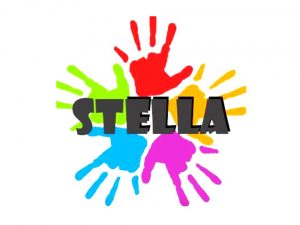We are STELLA – Get to know our project!
STELLA is a transnational, two-years project carried out in the frame of the ERASMUS+ program. Partners from ten different countries form a strategic partnership cooperating for innovation in the action’s prioritized fields social inclusion, diversity and staff’s education. The participating partners are organisations in Germany, Poland, Italy, Greece, the United Kingdom, Sweden, France, Lithuania, the Netherlands and Turkey. The project consortium is totally committed to the key statement of the Erasmus+ action that the investment in knowledge, skills and competences will benefit individuals, institutions, organizations and society by contributing to growth and ensuring equity, prosperity and social inclusion in Europe and beyond. The participating organisations have gathered years of precious work experiences with people with diabilities and people with special needs. Furthermore, the partners are well connected through their memberships in the international network of Caravan 2000. Through previously carried out projects most of the consortium partners have established trustworthy and reliable working relationships which are essential for the fast starting, effective work on the high-quality innovative outcomes and for reaching the objectives of this project. The project STELLA addresses the agenda for new skills and jobs included in the Europe 2020 Strategy as well as the intended Erasmus+ contribution to support implementation of the European policy agenda for individual and organizational growth, jobs, equity and social inclusion and the Declaration of Human Rights by the United Nations. Based on previously gathered observations and experiences regarding the strong wish of people with disabilities for an independent living, the partners could produce a needs analysis to identify the demanded competences which would support people with disabilities on their way to independent living and which would improve their professional chances drastically. These needs and competences include areas such as social (and social media) behavior, self-esteem, development of critical thinking, emotion control, team ability, analytical thinking, technical and communication skills. STELLA practicably targets these competences and produces as an innovative output a handbook for staff, trainers, HR resonsibles and educators on “How to improve basic work skills of people with disabilities”. The needs analysis is based on former projects’ lessons learned from different European countries and is not limited to certain areas of professionalism. Therefore, the innovative output is transferable and applicable to every field of the labor market as well as on an international dimension. The project is also carried out in an innovative way: During the project implementation people with disabilities are staff members of the work packages’ teams. The main objective of the project is the production of the handbook which basically provides everyone who operates in an inclusive work environment information and methods on how to improve basic work skills for people with disabilities. Additional objectives are to raise awareness of working in an inclusive team, to strengthen the digital era competences of the staff by working in virtual teams, to foster intercultural competences, to foster the EU citizenship, to include people with disabilities in all aspects of the implementation of the project and to improve the opportunities and conditions for people with disabilities for an independent living. Furthermore, the partners target a perceivable progress in terms of organizational learning by using project management methods based on the competence base line of the International Project Management Association (IPMA). STELLA activities are carried out on a national level (group discussions, workshops, role plays, job shadowing and video analysis). On a transnational level, four meetings in Germany, Greece, Turkey and Lithuania are predefined in a milestone plan during the project span of 24 months. Further activities address project marketing aspects, e.g. open houses and round rounds, to raise the project acceptance among the direct and indirect target groups and other stakeholders. The project consortium believes that STELLA will have a huge overall impact. Almost 9000 people are currently employed by the project partners and their associated partners. Additionally 1000 trainers and educators can be reached directly through the network of Caravan 2000 in which the partners are embedded. Therefore, the results of the project will have a potential impact on a total of 10000 staff members. Now, the partners assist and train almost 6000 people with disabilities in ten different European countries, so the potential longer term benefits are remarkable. Thousands of people with disabilities can be trained to improve their basic work skills and consequently be socially integrated and professionally included.

 English
English
